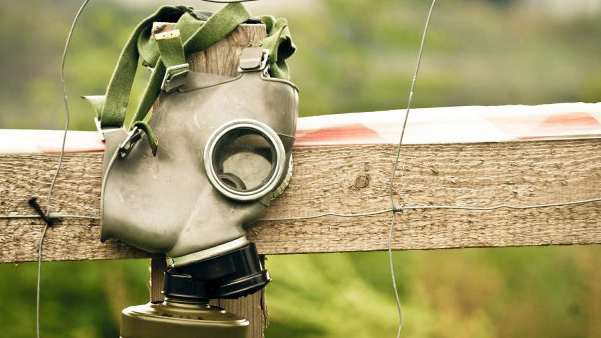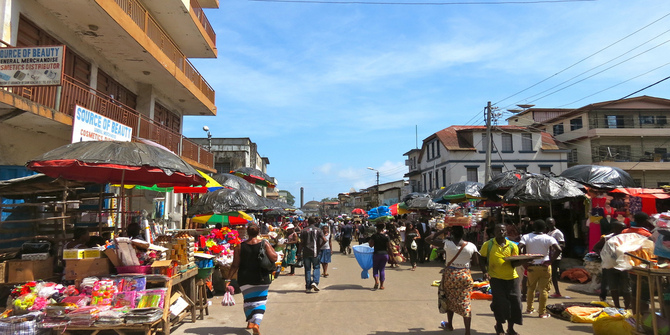Far away from political deal-making in Juba, cattle camp leaders in South Sudan, known as majokwut, are often a more influential factor in people’s everyday lives. Focusing on the camp in Gobrial town, known for keeping cattle for the country’s elites, we explore what the majokwuts do and what social role they play.
This post is an output from LSE’s Centre for Public Authority and International Development at the Firoz Lalji Centre for Africa.
In September 2018, the South Sudan government and opposition groups signed a peace deal that included the formation of a transitional state government, designed to end the violent conflict in the country since December 2013. Two years after the deal, appointments to the transitional government are still being finalised. The government and opposition groups competed for key ministries and notable individuals demanded potentially profitable posts. The uncertainty over appointments extended to local government and for months there were no county-level commissioners.
Back in 2010, elections had legitimised government appointments, yet wars resulted from political tensions in the run-up to the 2015 elections. A series of peace agreements and peace deals made it clear that government appointments were now a product of elite negotiations, backed by international diplomacy, especially the regional Intergovernmental Authority on Development (IGAD) and Troika nations such as Norway, the United States and the United Kingdom.
While relevant to the country’s governance, for South Sudanese government appointees are not the only authority figures that matter in people’s lives. I look at the role and appointment of the majokwut – the leader of a large cattle camp in Gogrial town, South Sudan. The majokwut governs the cattle camp voluntarily until he retires, shaping the lives of those who live in the camp and the wealth of those who keep their cattle inside it, including some of the most powerful elites in South Sudan.
The Gogrial cattle camp’s importance
In many parts of the country, cattle are a significant part of politics and the economy. People rely on their milk or their sale for food, school fees and medicine. Leaders build their authority through cattle ownership and gifts of cattle. The person with the most cattle in the community has the privilege of being appointed as a community leader; whenever the community needs an asset for a social or economic transaction, like a cow, the appointed leader will offer his cow voluntarily on behalf of his people (it is always a man). Most importantly, for the people of Gogrial and other parts of South Sudan, a cow is paid as a dowry. Some societies are so conservative that no cows mean no wife.
The majority of these cattle are cared for in camps. In Gogrial, these camps often number a few thousand herds and are inhabited by a broad demographic from children to grandparents. The cattle are owned by an even broader swathe of society, including the most senior politicians in Juba. For those living in the camp, they can act as a welfare system providing abundant milk for weaning children, or for older children during the hungriest months.
Power and leadership of the majokwut
Armed conflict continues in South Sudan, and attacks have repeatedly been launched against cattle camps. These attacks are executed by armed youth from different communities, with some cattle camp youth from one community organising themselves to wage an attack on another camp to raid their cattle. The raid is usually carried out under the sole command of the majokwut, who has a significant amount of power and influence over cattle camp youth, more than the chiefs of the villages, Bomas, Payams, counties and state as a whole.
The majokwut therefore has significant power over this military labour, which supports their prime function of not only leading the camp but overseeing the well-being of diverse people, taking care of every individual’s health, feeding and accommodation. Promotion of peaceful co-existence among the members within the camp, and security against external attack, are one of his top and uncompromised duties.
In South Sudan, many institutions have been incorporated or co-opted into government over time. For example, Cherry Leonardi’s work on chiefs in South Sudan highlights how the institution of chiefdom has been shaped by governments and how chiefs help communities ‘deal’ with government. While chiefs, and even youth, can fill this twilight space between society and government institutions, the majokwut has remained an institution that the government has not tried explicitly to incorporate into the structures of the state. This is not to suggest that the institution of the majokwut has not been influenced by shifts in the government’s logics of authority, but that the majokwut has gained legitimacy in part by preserving its distinction from government.
Appointing the majokwut
The majokwut does not come to power through ordinary elections. There are no campaign activities held in the camp, and neither do people choose to contest candidates for the majokwut position. A young person in the community with authentic leadership skills is appointed as majokwut without his knowledge or consent and convince him to assume the role.
When a majokwut marries and leaves the camp, or becomes too old to lead, elder youth or those who have been initiated five to 10 years earlier gather to select the next majokwut. The rienythii (bachelor youth four and above years old, with their heads marked, lower teeth removed and circumcised) who represent the camp as intellectuals, due to their roles as analysts and final decision makers, sit at a close meeting to discuss who should be appointed as their majokwut. If they have not reached a conclusion then they include aparaak (newly initiated youth) and dhagdit (uninitiated big boys) to give their opinions.
Over time, the characteristics that matter for a suitable majokwut have changed. It is often not the most wealthy that are appointed to camp leadership. Nowadays, people often focus on ngeeny (bravery) so that he can provide maximum safety. A brave majokwut mobilises their people and encourages individuals to ’man up’ by taking a lead to fight and protect. Most rienythii consider duar (luck) critical when they appoint majokwut, which they believe helps them succeed in difficult situations.
Despite much media and international attention to the political deadlock between the government and political opposition, and the vacuum this creates, the resulting set-up is little felt in Gogrial. The presence of majokwut in each and every camp remains a more significant factor in everyday lives.
Photo: ‘The cows come home’, South Sudan. Credit: Antheap (CC BY-ND 2.0).





